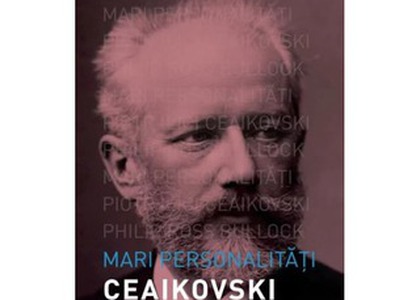> [Archived] Events

Prof. Philip Ross Bullock (Wadham College - University of Oxford) - guest of Music Success Stories
The guest of Music Success Stories is, starting with the February 19th edition, Philip Ross Bullock, Professor of Music and Russian Literature at the Wadham College Faculty of Music, Oxford University. Winner of the Philip Brett Prize of the American Musicological Society, and the Philip Leverhulme Prize for Modern Languages, both awarded in 2009, Philip Ross Bullock is a leading figure in contemporary musicology. His presence in Romania was prompted by an invitation from the National University of Music in Bucharest, to participate in the International Conference on Musicology "Control in Music. The effects and consequences of censorship institutions on music culture and education in Europe - from the end of the 19th century to the 1990s", held in October 2022. Litera Publishing has also recently publishedthe monographic volume Tchaikovsky, signed by Philip Ross Bullock, in the Great Personalities collection, translated by Cornelia Dumitru.
"Bullock discerns remarkable scholarliness and judgment into a small number of pages, painting a vivid and compelling portrait of the protagonist through captivating and eye-opening writing" praised Gramophone magazine. In the following programmes we will be talking to Philip Ross Bullock, to find out how he approached Russian literature and music, how he sees the place of Russian culture in the current political moment, and, of course, what his aims were when he wrote the Tchaikovsky volume, knowing that he particularly enjoys communicating academic ideas to a wider audience, and that he has written and presented a number of lectures and articles on Russian literature and music, which have been broadcast on BBC Radio 3.
"My personal view is that social, political and cultural factors have always shaped music, and even if creators did not actively participate in this political world, the way their music was written, received and understood was often influenced by political factors, despite the composers' intentions."
"Besides wanting to shed light on Russian culture and its dialogue with the West, I have always been very concerned in my research to explore the multi-ethnic, multi-religious and multi-cultural aspects of the imperial legacy of the 19th and early 20th century and the Soviet period, a period that includes the Baltic States, Ukraine, Central Asia, the Caucasus. These are very complicated questions for all of us who explore not only Russian culture, but all of European culture, meaning the legacies of the Habsburg, Ottoman, Austrian, British and French Empires. There are profound implications, still contested and not fully understood for contemporary societies and modern scholars."
"I looked at Tchaikovsky's career through the lens of his interactions with conservatories, with publishers, with concert institutions and how he used these institutions to become a symbol of Russia in the late 19th century, because Tchaikovsky became the iconic composer of the Russian Empire, but also abroad in France, Great Britain, Germany, North America. The second aspect I wanted to deal with was, of course, his private life and his sexuality. This is not a new subject, but one around which there is a great deal of misinformation and misunderstanding, and I wanted to treat it as a scientific subject, as an important biographical subject, but also as a matter of contemporary politics. I thought it was a very important thing to say, even if my paper was not published in Russia, it was still a very important statement to make, very clearly and in an academic, sober and honest way, in a scientific and accessible book."
(Excerpts from an interview with Philip Ross Bullock for Music Success Stories)
Translated by Andreea Zofotă,
University of Bucharest, Faculty of Foreign Languages and Literatures, MTTLC, year II
Corrected by Silvia Petrescu














